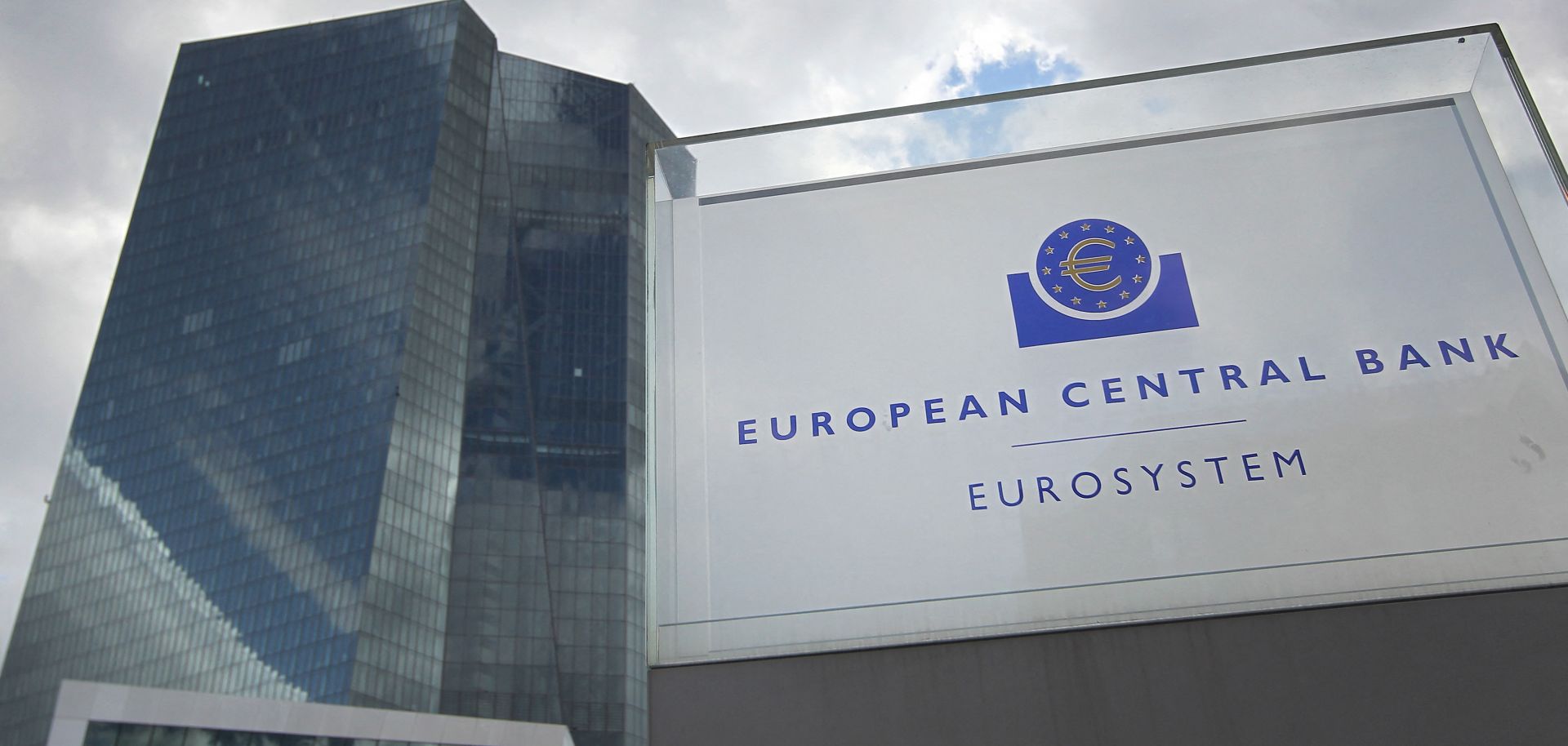
The headquarters of the European Central Bank (ECB) is pictured in Frankfurt, Germany, on July 21, 2022.
(DANIEL ROLAND/AFP via Getty Images)
Recent moves by the European Central Bank (ECB) should reduce the risk of a new sovereign debt crisis in the eurozone, but highly indebted countries will still have to step up fiscal consolidation efforts as borrowing costs will continue to increase. On July 21, the ECB announced a combination of measures to contain rising inflation in the eurozone while keeping the gap between member states’ sovereign borrowing costs from widening excessively. The bank increased interest rates for the first time in 11 years, surprising markets with a hike of 50 basis points that brought the ECB’s deposit rate to zero. The ECB also unveiled its new Transmission Protection Instrument (TPI) bond-buying program to prevent individual countries’ bond yields from increasing beyond what is justified by economic fundamentals and diverging too much from one another. While the ECB has not signaled any intention to activate the new TPI scheme anytime soon,…



